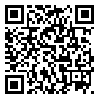Volume 5, Issue 2 (2025)
jpt 2025, 5(2): 165-178 |
Back to browse issues page
Download citation:
BibTeX | RIS | EndNote | Medlars | ProCite | Reference Manager | RefWorks
Send citation to:



BibTeX | RIS | EndNote | Medlars | ProCite | Reference Manager | RefWorks
Send citation to:
Mohseni M. Wittgenstein’s Early Philosophy; Interpretations and Applications. jpt 2025; 5 (2) :165-178
URL: http://jpt.modares.ac.ir/article-34-79433-en.html
URL: http://jpt.modares.ac.ir/article-34-79433-en.html
Department of Philosophy, Faculty of Literature and Humanities, Shahid Beheshti University, Tehran, Iran
Abstract: (1031 Views)
The basis of Wittgenstein’s early thought is that concepts like God and values have no representation in names, that is, they are never named, because names stand only for things that are simple, solid parts of the world. Since these things are never named and have no simple signs within the proposition to represent them in the proposition, no meaningful proposition can ever be formed about them, and no meaningful talk can be said about them. If Wittgenstein’s theory had ended there, we would be right to call Wittgenstein a positivist. But the final paragraphs of the Tractatus provide evidence that a positivist interpretation of the Tractatus cannot be what Wittgenstein intended. Wittgenstein was not claiming that there is no God, that life is completely meaningless, and that values are illusions; rather, his argument was directed at the limits of language. He said that one should remain silent about what is beyond the scope of language.
Article Type: Literature Review |
Subject:
Philosophy of Language (Analytical)
Received: 2025/02/16 | Accepted: 2025/03/30 | Published: 2025/04/30
Received: 2025/02/16 | Accepted: 2025/03/30 | Published: 2025/04/30
References
1. Anscombe GEM (1959). An introduction to Wittgenstein's Tractatus. Kakasoltani H, translator. Tehran: GAME NU. [Persian] [Link]
2. Brommage TJ (2008). Three Wittgensteins: Interpreting the Tractatus logico philosophicus [dissertation]. Tampa: University of South Florida. [Link]
3. Bronzo S (2012). The resolute reading and its critics: An introduction to the literature. Wittgenstein-Studien. 3(1):45-80. [Link] [DOI:10.1515/wgst.2012.45]
4. Cavell S (1984). Existentialism and analytical philosophy. In: Themes out of school: Effects and causes. Chicago: University of Chicago Press. [Link]
5. Conant J (1991). Throwing away the top of the ladder. The Yale Review. 79(3):328-364. [Link]
6. Diamond C (1991). Throwing away the ladder: How to read the tractatus. Philosophy. 63 (243):5-27. [Link] [DOI:10.1017/S0031819100043102]
7. Englemann P (1967). Letters from Ludwig Wittgenstein with a Memoir. Furtmüller L, translator. Oxford: Basil Blackwell. [Link]
8. Monk R (1991). Wittgenstein: The duty of genius. New York: Penguin. [Link]
9. Norman M, Wright GH (2016). Ludwig Wittgenstein; A memoir. Kakasoltani H, translator. Tehran: GAME NU. [Persian] [Link]
10. Oswalt H (2017). Wittgenstein's later philosophy. Hojjat M, translator. Tehran: Hermes. [Persian] [Link]
11. Stern D (2003). The methods of the Tractatus: Beyond positivism and metaphysics?. In: Logical empiricism: Historical and contemporary perspectives. Pittsburgh: University of Pittsburgh Press. p. 125-156. [Link] [DOI:10.2307/j.ctvt6rjh9.12]
12. Stroll A (2014). Wittgenstein. Talaie Mahani M, translator. Tehran: HIKMAT. [Persian] [Link]
13. Wittgenstein L (1961). Tractatus logico-philosophicus. Pears DF, McGuinness BF, translators. London: Routledge. [Link]
14. Wittgenstein L (1961). Tractatus logico-philosophicus. Pears DF, McGuinness BF, translators. London: Routledge. [Link]
15. Wittgenstein L (2014). Logical-philosophical treatise. Dabbagh S, translator. Tehran: Hermes Publications. [Persian] [Link]
| Rights and permissions | |
 |
This work is licensed under a Creative Commons Attribution-NonCommercial 4.0 International License. |






